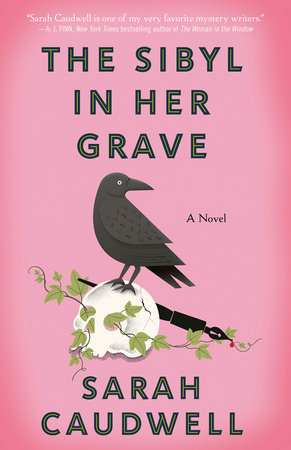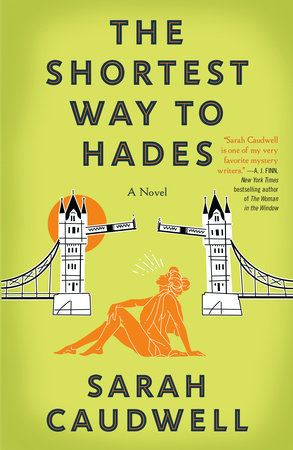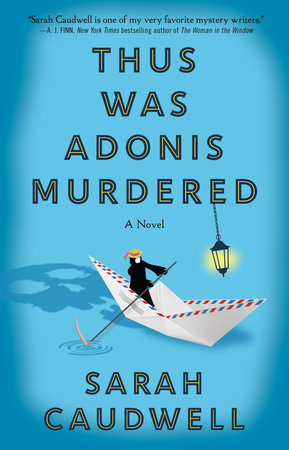Excerpt
The Sibyl in Her Grave
The two men struggling on the floor of the Clerks' Room differed widely in appearance: one young, of slender build, dressed in cotton and denim, with honey-coloured hair worn rather long and a pleasing delicacy of feature; the other perhaps in his sixties, tending to plumpness, wearing a pinstriped suit, with the round, pink face of a bad-tempered baby and very little hair at all. They rolled this way and that, as it seemed inextricably entwined, uttering indistinguishable cries and groans, whether of pain or pleasure I could not easily determine. A ladder was also involved in the proceedings.
I concluded after a few moments that their entanglement was neither hostile nor amorous, but of an involuntary nature on both sides, the result, very possibly, of an accidental collision between the older man and the ladder at a moment when the younger was standing, perhaps imperfectly balanced, on one of its upper rungs.
"Sir Robert—Sir Robert, are you all right?"
Selena's voice, as she ran forward to assist the older man to his feet, conveyed a tactful mixture of deference, apology and concern--it seemed likely that he was one of her clients. If so, this was not the moment to lay claim to her attention: I withdrew, thinking that a pleasant half hour or so could be spent in visiting Julia Larwood in the Revenue chambers next door.
At 63 New Square I found Julia sitting at her desk, surrounded by papers, tax encyclopedias, half-empty coffee cups, and overflowing ashtrays, more than ever resembling in appearance some particularly dishevelled heroine of Greek tragedy. I concluded that she was working on a matter of some importance.
"Yes," said Julia, waving hospitably towards an armchair. "Yes, I am. I'm writing a letter to my aunt Regina. She is in urgent need of my advice." She spoke a trifle defensively, no doubt aware that I would find the claim improbable.
Julia's aunt Regina, having spent several periods of her life in more distant parts of the world, had now chosen, as I recalled, to settle in Parsons Haver in West Sussex--a charming village on the banks of the Arun or the Adur, I forget which, of the kind that Londoners are usually thinking of when they dream of the pleasures of rusticity. Having at one time in the Middle Ages flourished as a seaport, it has long since been deprived by the changing coastline of any commercial importance; but its cobbled streets, its knapped flint cottages and its fine Norman church continue to attract the discerning tourist and those in quest of an idyllic retirement.
Regina Sheldon herself, whom I had once or twice had the pleasure of meeting, had also struck me as having something about her appearance which savoured of the mediaeval. As a girl, I suppose, she would rather have put one in mind of a good-looking pageboy at the court of one of the Plantagenets; now, though her figure was no longer boyish and the dark auburn of her hair must have owed less to nature than to her hairdresser, one could still imagine her as the same pageboy, grown up to be an ambassador or a rather worldly cardinal. Having married four husbands and brought up two sons, she professed to have retired from matrimony: the chief outlet for her talents and formidable energies was a small antique shop, adjoining the discreetly modernised cottage in which she lived.
There were few areas in which I could imagine her requiring the benefit of Julia's wisdom and experience.
"She has a tax problem," said Julia. "If you'd like to read about it, while I finish writing this—"
She offered for my perusal a letter running to several pages, written in distinctively elegant but perfectly legible manuscript.
24 High Street Parsons Haver West Sussex
Monday, 14th June
Dear Julia,
Now do please read this properly as soon as you open it, instead of putting it somewhere safe and forgetting about it. There's something I need your advice on--I think it's the kind of thing you're supposed to know about--and it's much too complicated to explain by telephone.
It all started in February last year, when Maurice and Griselda and I were sitting in the Newt and Ninepence. And don't be tiresome, Julia, you know perfectly well who Maurice and Griselda are, or if you don't it's quite disgraceful of you.
Maurice Dulcimer is the vicar at St. Ethel's. Well, in a manner of speaking--the Church Commissioners decided that St. Ethel's was too small to have a full-time vicar to itself, so he's been rationalised into an assistant curate--but they let him go on living at the Vicarage and everyone still calls him "Vicar." I always invite him to dinner when you're down here and you usually seem to amuse each other.
And you certainly ought to remember Griselda--Griselda Carstairs, my neighbour, who does people's gardens and has cats. The first time you met her she was weeding my rose bed and you spent ten minutes flirting with her before you realised she was a woman, not a young man. And I do think, Julia, though of course I wouldn't like you to be the sort of girl who's obsessed with sex, that you ought to be able by now to tell the difference. Just because Griselda has short hair and was wearing trousers—
Well, as I say, there we were in the Newt, as we usually are on a Saturday morning, helping each other to finish our crosswords and talking of this and that. And it turned out that we were all a little bit richer than usual, to the tune of four or five hundred pounds each. Maurice had written an article on Virgil for one of the up-market papers, and been quite well paid for it. Griselda had been left a small legacy by someone whose garden she used to look after. And a charming American tourist had walked into my antique shop and bought some things I'd quite despaired of selling.
So we had an extra round of drinks to celebrate and talked about how to spend the money. By and by, though, we began to realise that it wasn't actually quite enough. Not enough, I mean, to do anything exciting with. When Maurice and I were your age, five hundred pounds was a very large sum of money—it could almost have changed one's life. And even when Griselda was your age, which isn't nearly so long ago, it would still have been pretty substantial. But nowadays--and yet it seemed a shame just to put it in the bank, and let it trickle away in everyday expenses.
"It would be awfully nice," said Griselda, "if it were about twice as much." Which summed up our feelings in a nutshell. Maurice thought we might put it on deposit, and leave the interest to accumulate for a while. We were working out how long it would take for us to double our money in that way, and getting a bit depressed about the answer, when Ricky Farnham came in.








